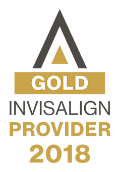Improve Sleep Quality and Overall Health with Lifestyle Changes
Struggling with disrupted sleep and daytime fatigue? Sleep apnea, a common sleep disorder, can significantly impact your quality of life. While CPAP (Continuous Positive Airway Pressure) machines are a standard treatment, many find them noisy and uncomfortable. The good news? Lifestyle changes can play a crucial role in managing sleep apnea symptoms, especially for those with mild obstructive sleep apnea.
If you’re in Tacoma, Lakewood, Puyallup, or surrounding areas, our dental office is here to help. Call our Tacoma dental office at (253) 761-5422 to explore personalized treatment options and take the first step toward better sleep.
What Is Sleep Apnea?
Sleep apnea is a sleep disorder characterized by repeated interruptions in breathing during sleep. These pauses, known as apneas, occur when the upper airway becomes blocked or collapses, leading to poor sleep quality, daytime sleepiness, and other health complications. Obstructive sleep apnea (OSA) is the most common type, often linked to factors like excess weight, nasal allergies, or throat muscle relaxation.
Why Treating Sleep Apnea Matters
Untreated sleep apnea can lead to serious health risks, including cardiovascular diseases, high blood pressure, and impaired cognitive function. However, effective treatment, including lifestyle changes, can improve sleep quality, boost energy levels, and enhance overall well-being.

Lifestyle Changes to Improve Sleep Apnea Symptoms
Making targeted lifestyle changes can significantly reduce sleep apnea symptoms and improve your overall sleep quality. Here are some actionable tips:
Weight Management for Better Sleep
Excess weight, particularly around the neck and upper body, can contribute to airway obstruction. Losing even a small amount of weight can improve sleep apnea symptoms. Focus on a healthy diet rich in whole foods, lean proteins, and vegetables, and pair it with regular physical activity like moderate exercise or aerobic workouts.
Optimize Your Sleep Position
Did you know your sleep position can impact sleep apnea? Sleeping on your back can cause the soft palate and tongue to collapse, blocking the airway. Positional therapy, such as side sleeping with supportive pillows, can help keep the airway open and reduce apnea episodes.
Avoid Alcohol and Sedatives
Alcohol consumption and sleeping pills relax the throat muscles, worsening sleep apnea symptoms. Limiting or avoiding these substances, especially before bedtime, can lead to better sleep quality and fewer breathing interruptions.
Quit Smoking for Improved Airway Health
Smoking increases inflammation and fluid retention in the upper airway, exacerbating sleep apnea. Quitting smoking not only improves sleep but also enhances overall health.
Establish a Consistent Sleep Schedule
A regular sleep cycle helps regulate your body’s internal clock, promoting better sleep quality. Aim to go to bed and wake up at the same time every day, even on weekends.
Incorporate Regular Exercise
Physical activity strengthens the upper airway muscles and aids in weight management. Activities like brisk walking, swimming, or yoga can be particularly beneficial. Just avoid exercising too close to bedtime, as it may disrupt your sleep.
Improve Sleep Hygiene
Create a sleep-friendly environment by keeping your bedroom cool, dark, and quiet. Avoid caffeine and large meals before bed, and consider using a humidifier if nasal allergies or congestion are an issue.

Benefits of Lifestyle Changes for Sleep Apnea
Adopting these lifestyle changes can lead to:
- Improved Sleep Quality: Fewer nighttime awakenings and deeper, more restful sleep.
- Enhanced Daytime Alertness: Better focus, productivity, and reduced daytime sleepiness.
- Reduced Health Risks: Lower risk of cardiovascular diseases, high blood pressure, and diabetes.
- Weight Loss: Shedding excess weight, especially around the neck, can alleviate airway obstruction.
- Better Mood: Improved emotional well-being and reduced symptoms of anxiety and depression.
Frequently Asked Questions
Can sleep apnea affect my daily productivity?
Yes. Untreated sleep apnea can lead to daytime drowsiness, difficulty concentrating, and irritability, hindering your ability to perform at your best.
Is snoring always a sign of sleep apnea?
Not always, but loud, persistent snoring can indicate an airway obstruction. If snoring is accompanied by daytime fatigue or gasping during sleep, it’s worth consulting a sleep specialist.
What are the treatment options for sleep apnea?
Beyond CPAP therapy, options include oral appliances, positional therapy, and lifestyle changes like weight management and quitting smoking. In some cases, bariatric surgery or nasal surgery may be recommended.
Take Control of Your Sleep Health in Tacoma, WA
Don’t let sleep apnea rob you of restful sleep and vibrant health. Whether you’re in Tacoma, Lakewood, Puyallup, or nearby areas, our dental office is here to help. Call (253) 761-5422 today to schedule a consultation and discover how lifestyle changes and personalized treatments can transform your sleep and overall well-being.





















